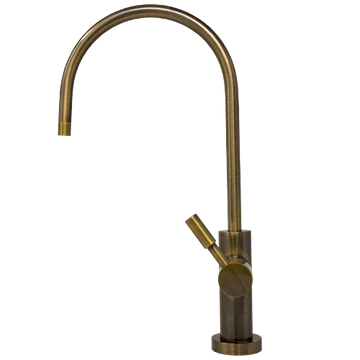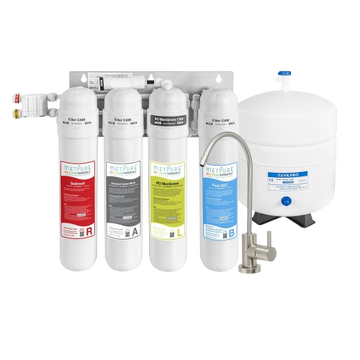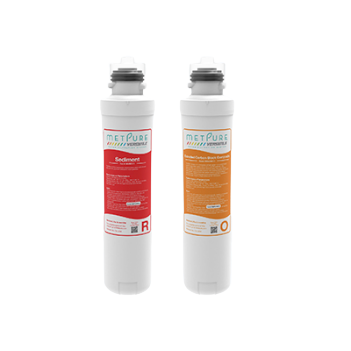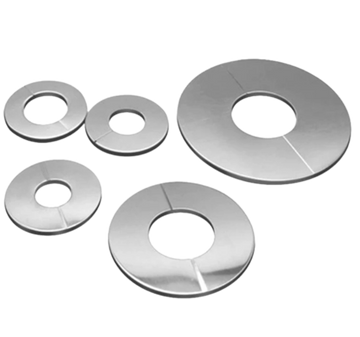Why Do Water Filters Need Maintenance and Replacement?
Water filters play a crucial role in ensuring clean and safe drinking water. Over time, contaminants, sediments, and bacteria accumulate in the filter, reducing its efficiency. If neglected, a clogged filter can lead to poor water quality, potential health risks, and damage to your plumbing system. Regular maintenance and timely replacements keep your water clean and fresh.
Here is the Step-by-Step: Installing Your Whole House Water Filter System 2025 Guide
Factors That Affect the Lifespan of a Water Filter
Several factors determine how often you need to replace your water filter:
-
Usage Frequency: Households using large amounts of filtered water may need replacements more often.
-
Water Quality: Hard water and high sediment levels shorten the lifespan of your filter.
-
Filter Type: Different filters (activated carbon, reverse osmosis, etc.) have varying longevity.
-
Manufacturer Recommendations: Always follow the suggested replacement schedule to maintain optimal performance.
Tips to Maximize the Lifespan of Your Water Filter

To get the most out of your water filter, follow these essential maintenance tips:
-
Replace Filters on Time: Keep track of the recommended replacement schedule.
-
Schedule Regular Cleaning: Some filter systems require periodic cleaning to prevent buildup.
-
Use Pre-Filters: If you have high sediment levels, pre-filters can help extend the life of your main filter.
-
Monitor Water Quality: If you notice any changes in taste, smell, or clarity, it might be time for a replacement.
-
Check for Leaks: Leaking connections can indicate that your filter is not working correctly, leading to inefficient filtration.
-
Store Extra Filters: Having replacement filters on hand ensures you never go without clean water.
When Should You Replace Your Water Filter?
A failing water filter can lead to water contamination, making it essential to recognize warning signs. Here are 9 warning signs that indicate your water filter needs immediate replacement:
-
Unpleasant Taste: If your water starts tasting metallic, sour, or chlorine-like, the filter is no longer removing impurities effectively.
-
Foul Odor: A bad smell in your drinking water suggests bacterial buildup in the filter.
-
Cloudy or Discolored Water: If the water appears murky, it's a sign that sediments are not being filtered properly.
-
Slow Water Flow: A clogged filter reduces water pressure, making it difficult to get filtered water.
-
Visible Sediment or Particles: If you see floating particles in your water, your filter is failing.
-
Increased Health Issues: A sudden increase in stomach issues or skin irritations may be linked to poor water quality.
-
Water Filter System Alerts: Some modern filters have indicator lights that signal when a replacement is due.
-
Higher Utility Bills: A struggling filter can cause your water system to work harder, increasing energy consumption.
-
Overdue Replacement Date: If you haven't changed your filter in months or years, it's overdue for replacement.
Learn about how to maximize water filtration lifespan
How to Choose the Right Replacement Filter
Not all water filters are the same. When selecting a replacement, consider the following:
-
Compatibility: Ensure the new filter is compatible with your water filtration system.
-
Certification: Look for NSF-certified filters to guarantee quality and safety.
-
Filtration Needs: Choose a filter that addresses your specific water concerns, such as heavy metals, chlorine, or bacteria.
-
Lifespan: Check the estimated lifespan to ensure it meets your household needs.
-
Ease of Installation: Some filters require professional installation, while others are easy to replace on your own.
Why Choose Metpure Filters?
Metpure water filters meet all essential criteria, making them a top choice for households looking for superior water filtration.
-
Universal Compatibility: Metpure filters are designed to work seamlessly with a wide range of water filtration systems, ensuring hassle-free installation and optimal performance.
-
NSF-Certified: Our filters meet rigorous NSF standards for safety and quality, providing you with water free from harmful contaminants.
-
Advanced Filtration Technology: Whether you're looking to reduce chlorine, heavy metals, bacteria, or sediment, Metpure filters are engineered to effectively target and remove impurities, delivering clean and great-tasting water.
-
Long-Lasting Performance: Metpure filters have an extended lifespan, ensuring long-term efficiency and reducing the frequency of replacements.
-
Easy DIY Installation: Designed for user convenience, Metpure filters can be easily installed without professional assistance, making maintenance simple and cost-effective.
Common Types of Water Filters
Understanding different types of water filters can help you make the best choice for your home:
-
Activated Carbon Filters: Effective at removing chlorine, bad tastes, and odors.
-
Reverse Osmosis (RO) Systems: Provide high-quality filtration by removing heavy metals, fluoride, and other contaminants.
-
Sediment Filters: Trap dirt, rust, and larger particles, protecting other filters from clogging.
-
UV Filters: Use ultraviolet light to kill bacteria and viruses in water.
-
Ion Exchange Filters: Soften hard water by removing calcium and magnesium ions.
The Importance of Regular Water Filter Maintenance
Failing to replace your water filter on time can lead to several issues:
-
Increased Contaminants: A clogged filter can no longer remove impurities, leading to poor water quality.
-
Bacterial Growth: Old filters can become breeding grounds for bacteria and mold.
-
Plumbing Damage: Sediment buildup can clog pipes and reduce water flow.
-
Higher Costs: Poor water quality can lead to increased spending on bottled water or appliance repairs.
Final Thoughts
Maintaining your water filter is crucial for ensuring clean, safe, and fresh drinking water. Regular replacements prevent health risks, improve taste, and extend the life of your filtration system. If you've noticed any of the warning signs mentioned above, it's time to replace your filter immediately. Stay proactive and ensure the best quality water for you and your family!
By understanding the importance of water filter maintenance and replacement, you can protect your health and prolong the efficiency of your filtration system. Don't wait until problems arise—keep a close eye on your water filter and replace it as needed for optimal performance.















